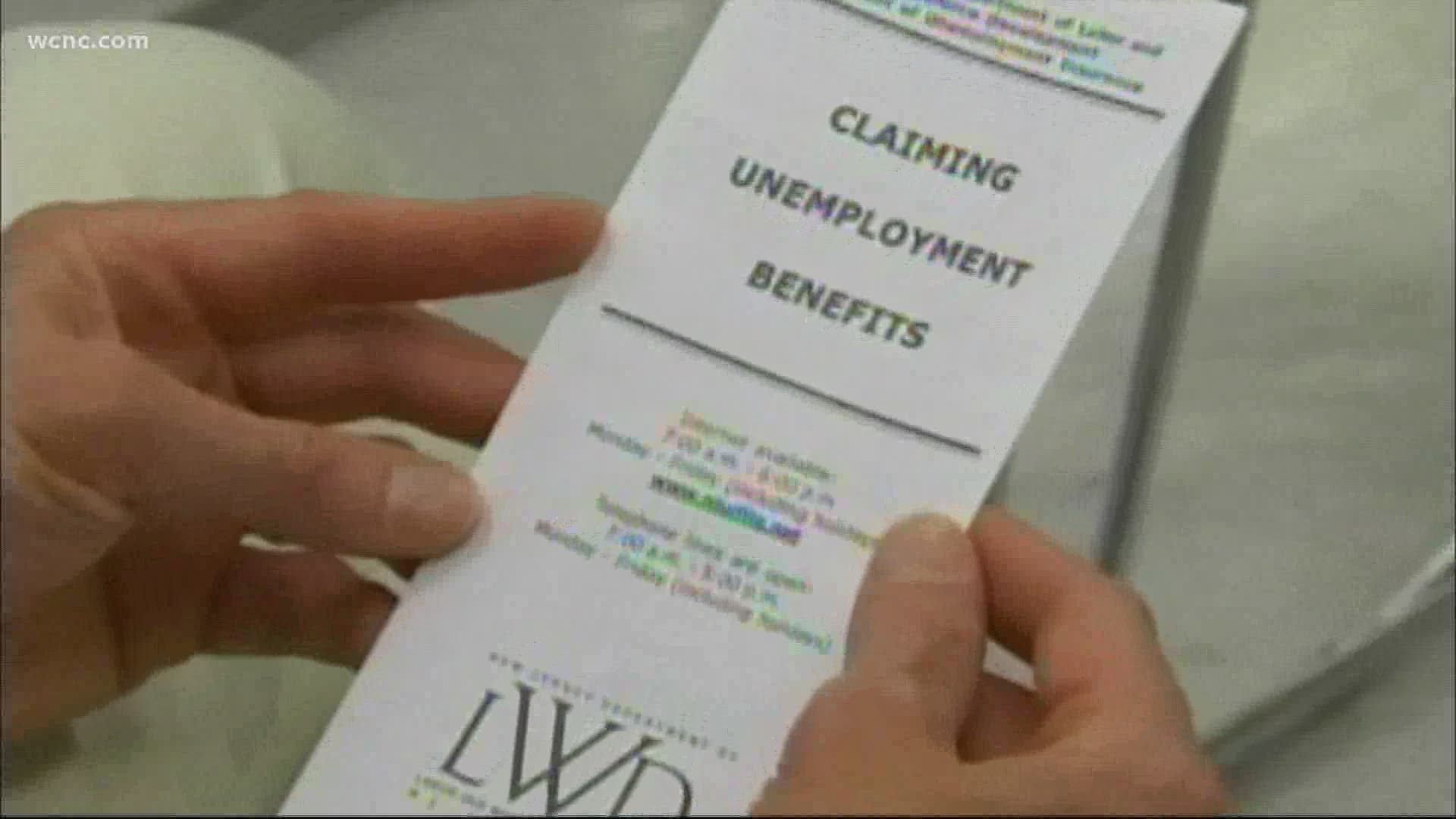CHARLOTTE, N.C. — From hanging up on callers to telling them one thing and then doing another, the North Carolina Division of Employment Security continues to fail some of the state's unemployed.
As of July 27, a combined 107,000 claims remained "pending resolution" for state or federal benefits, according to DES. Some of those people have waited for months.
Gov. Roy Cooper said the state is now pulling employees from other agencies to help DES "with this significant, but highly important task."
"They're going to keep working every day and I'm going to keep pushing them," the governor told WCNC Charlotte.
"Fortunately, I'm not desperate"
Susan Davidovicz, thankfully, is a good saver. The Matthews woman lost her job in January, before the pandemic. Even worse, she then lost seasonal work in March. Until recently, she only received a portion of her unemployment benefits.
"It's never gotten resolved," she said on July 13. "It seems like every agent that I speak to gives you a different story."
For the longest time, she said her account was home to an isolated issue labeled "pension/retirement pending resolution." She said every time she called the DES helpline, the agents who answered her call were not authorized to correct the issue, so they promised to escalate her claim.
"They have told me time and time again that they're escalating my claim, but then nothing gets resolved," Davidovicz said. "They tell me they don't see any notes on there that it's been escalated, so I'm questioning if they even are being truthful when they're telling me they're escalating my claim."
Delayed escalations, hang-ups, full queues
According to DES, employees are supposed to note when a claim is escalated, but escalation does not mean "there will be an immediate resolution." Instead, a spokesperson said escalation helps direct the claim to a staff member who can help. One agent said escalation can take six weeks to result in a callback,
A DES spokesperson said the agency has "substantially" improved since an initial "tremendous surge in claims" first overwhelmed the system. Even so, Kyle Benjamin, who has waited months to receive his benefits, told us he's often hung up on when he calls.
"Yea, I have a question about my pandemic unemployment application," Benjamin said during a July call to the DES helpline.
"I can't hear you," the agent responded before muttering something and hanging up.
DES said agents receive initial training before taking phone calls and then received continuing training to improve their skills.
"We are continually reviewing call center operations and targeting improvements to our customer service," DES spokesperson Kerry McComber said. "During times of very high call volume, callers may hear a disconnect message because the hold queue is full. In these instances, the caller hears a message asking them to call back, and the connection is ended. This only occurs when all available agents are busy and the hold queue is full."
Those messages continued recently, even though DES has added roughly 2,500 employees since March 1 to help. The agency currently employs approximately 3,000 people compared to the roughly 550 who worked there before the pandemic.
Historically, North Carolina has struggled with unemployment. Even before COVID-19, the federal government ranked the state the worst in the country for timely payments.
"When will the state fix these problems?"
DES, which changed leadership in May, declined an on-camera interview for this story, citing "very limited availability for interviews," so we questioned Gov. Cooper during a recent media briefing.
"When will the state fix these problems?" we asked the governor.
"First, there's been significant progress made in this area," he responded. "As you know, a system that was used to 12,000 claims a month was overwhelmed with a million claims in a short period of time. However, it is critically important to get these payments to these families who are living on the edge."
The governor reminded us the state has delivered more than 815,000 claims, but also acknowledged the outstanding "more complicated" pending claims at the state and federal levels.
"The department is working hard to get those claims resolved," Gov. Cooper said.
A July 17 DES email revealed the state only recently resolved all claims from the first month of the pandemic.
"I'm totally in shock"
Susan Davidovicz is now among those whose claims are resolved. Shortly after we reached out to the state on her behalf, she received 10 weeks of unemployment benefits worth more than $9,000.
"I'm totally in shock," she said. "I mean the response was unbelievable."
Not only is she thankful she now has her money, but she's also grateful she doesn't have to call the DES helpline again.
"How do I feel? Like a heavyweight has been lifted off my shoulders," Davidovicz said.

